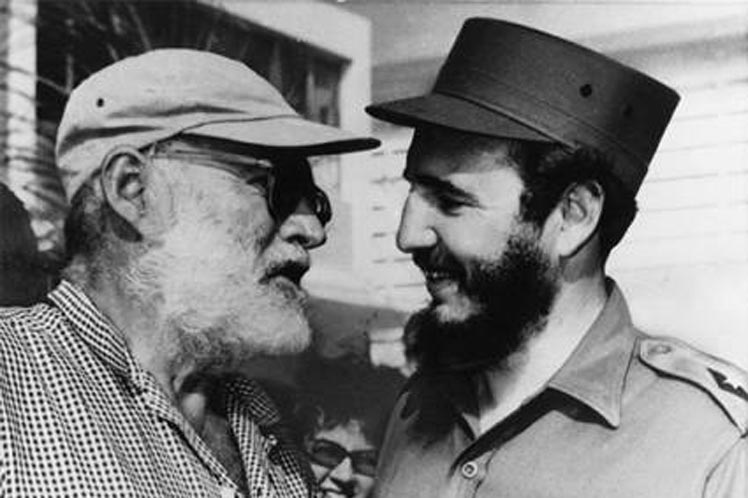After the death of the American writer Ernest Hemingway , on a day like today in 1961, Cuban leader Fidel Castro went to Finca Vigía to read his will in the presence of his ex-wife Mary Welsh.
It is not known for sure when the sympathy of the intellectual for the revolutionary leader arose; However, the essayist Ciro Bianchi supposes that this could originate from the presence of Fidel in the Sierra Maestra, during the 1950s.
The first time that both coincided was in the International Fishing Tournament of the Needle, on Sunday, May 15, 1960, when Hemingway went to sea in his yacht Pilar and the leader of the Caribbean nation, accompanied by the Argentine doctor Ernesto Che Guevara He did it on the Cristal yacht.
At the end of the day the two met on the dock. It is unknown if he ever visited him at Finca Vigía, but some expressed the intellectual's interest in commenting on issues of American politics that he should bear in mind, Bianchi exclusively told Prensa Latina .
The famous novel For Whom the Bell Tolls , published in 1940, constitutes his first link with the Cuban Revolution . In 1975, during a conversation between Fidel Castro and the Americans Kirby Jones and Frank Mankiewicz, which later became the book With Fidel: a portrait of Castro and Cuba , the lawyer and politician assured:
Of the North American authors, Hemingway is one of my favorites (…) I knew his works since before the Revolution (…) he spoke of the rearguard of a guerrilla group that fought against a conventional army (…) That novel was one of the works that He helped me develop tactics to fight Batista's army.
A Nobel for Cubans
In 1954, when he received the Nobel Prize for Literature, Hemingway expressed :
This is an award that belongs to Cuba because my work was thought and created in Cuba, with my people from Cojímar, where I am a citizen. Through all the translations this adopted homeland is present where I have my books and my home.
Bianchi recalled that during the writer's return to the island in 1959 a journalist questioned him about the coldness of the United States towards the Caribbean nation. In addition to acknowledging that he deplored this situation, the novelist replied that, after 20 years of residence in the country, he considered himself a true Cuban.
Then he grabs the flag of the Antillean archipelago and kisses it. The photographers who don't have time to capture the gesture ask him to repeat it, so the intellectual responds with a smile: I said I was Cuban, not an actor. He even offered the Nobel medal to the Virgin of Charity, Patroness of the largest of the Antilles, explained Bianchi.
On August 13, 1956, in the party room of the Hatuey Brewery, the novelist presented that medal to the guests.
Although more than 20 cultural institutions from that time participated in the celebration, Hemingway seated his fishing friends from Cojímar in the presidency, considering them "the best people in Cuba."
Many consider that, when he left the island in 1960, the North American author could not forget its smells, flavors, routines and landscapes.
That same year, he was hospitalized in a clinic in the United States and, as a farewell sentence, declared to journalists who approached him: "people of honor believe in the Cuban Revolution."


Deje un comentario